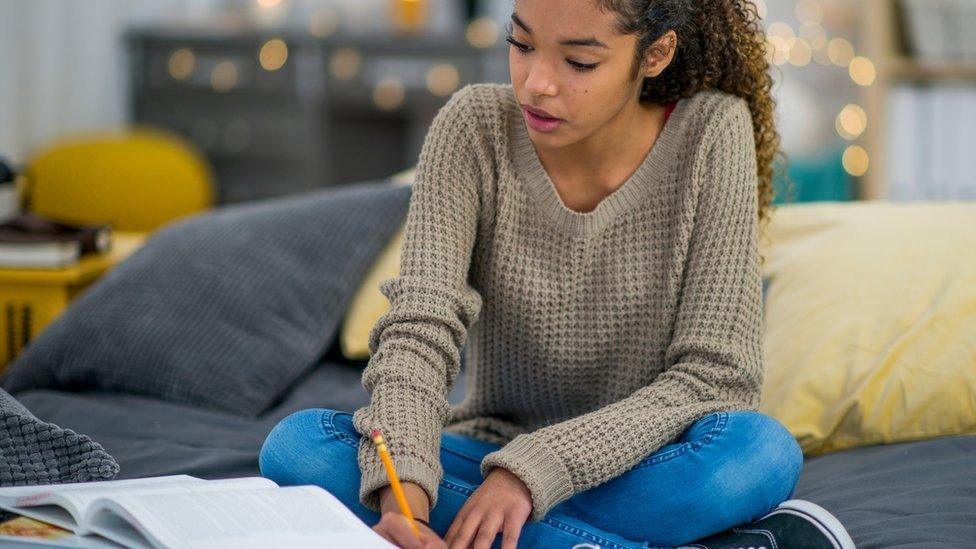Exams 2018: The 'myth' of the visual learner
- Published

If you're a visual person, do you always need pictures in order to learn best, even if the thing you're learning is a musical instrument? And what about aural learners who like to hear their information in order to remember it - do they need to listen to learn? What about if they're learning to drive a car?
It's a popular belief that people have different styles of learning - visual, aural, reading and writing or kinaesthetic (carrying out physical activities).
But is that really how learning works?
In fact, three decades of academic literature and hundreds of studies have been unable to find little robust evidence to suggest, external matching teaching to people's preferred style helps them to learn better.
Scientists have described this as a "neuromyth", up there with the idea that we only use 10% of our brains.
Self-identification
People may believe themselves to be visual or aural learners, and report having absorbed information better when taught as such - but one study suggested this isn't borne out in their test results., external
Participants' preference for verbal or visual information was assessed using a questionnaire. They then studied words and pictures and were asked to judge how well they had learned each list, before being tested on them.
The researchers found no association between whether they were assessed as verbal or visual learners and how well they scored on remembering the words versus pictures. There was also no link found between how well they judged themselves to have learned each list and how accurately they actually recalled them.
However, there was a link between participants' preferences and their judgement of how well they had learnt the visual or verbal information.
So it seems being taught in our preferred learning style may affect the subjective elements of education - how well we think we've learnt something - but not the objective elements - how well we actually score when tested on the information.
Learning styles (how you do something) shouldn't be confused with ability (how well you do something), however.
Style vs ability
It's fairly uncontroversial to say that people have different levels of ability - one person might be very strong visually, and be talented at art, while another may have good spatial awareness, and excel at geometry.
But that doesn't mean they must learn everything that way - there's no evidence to suggest someone with high verbal abilities needs to learn everything by saying it aloud, for example.
There also some relationship between these different types of ability, so in many case someone who is a good visual learner will also be a good aural learner, and vice versa.
Dame Professor Uta Frith at University College London says: "Learning styles have been discredited. But still, we shouldn't forget that there are different ways of learning and there are individual differences in the way people plan and do things."
And people with, "neuro-developmental conditions such as dyslexia need to find ways around their problems," she adds.

So, how should you revise?
Many common techniques like highlighting or underlining and re-reading notes are not as useful as many might think, external, research suggests.
These are the revision techniques with better evidence to support them:
Test yourself, or complete practice papers.
Spread out your study over time
Mix up different problem types and topics rather than learning in blocks - particularly for maths and science

Researchers say while the idea of learning styles should suggest that, for example a visual learner would always perform best when taught using visual materials, in reality the best way of learning something depends on the subject and on the level of the learner.
For example, in some subjects - especially maths - studies have suggested lower-ability students learn more in highly structured environments with lots of input from teachers, while higher-ability students learn best in less structured environments, where they are left to complete exercises on their own. But this pattern is reversed in other subjects.
We also learn differently depending on whether we are new to a subject or more experienced.
When we know more about a subject, any new information we receive about it forms part of a wider pattern in our brains, making it easier for us to remember because we can mentally store it as one "unit".
So, while for newer learners it's more helpful to present them with the essential information and point out those patterns, for more experienced learners that might be actively counterproductive.
Instead, more experienced learners benefit from minimal instruction where they are encouraged to discover or construct the essential information themselves.